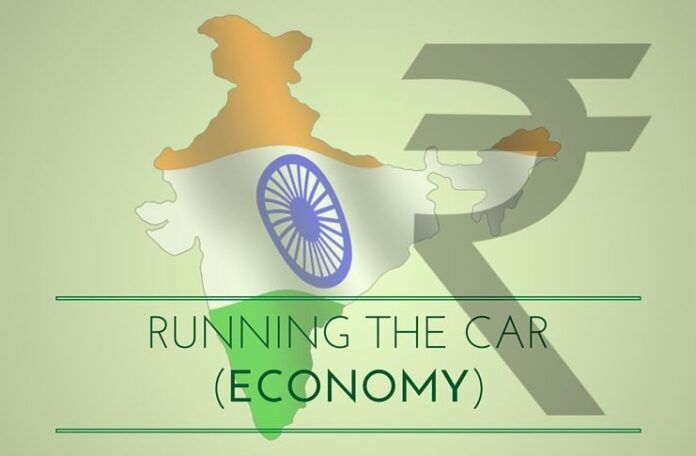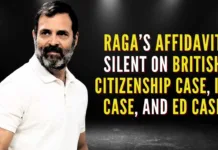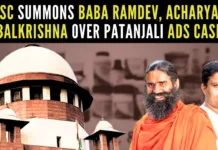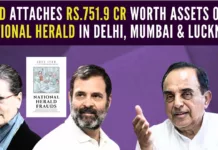
This is Part 3 of the series on Broken System and how to fix it. In Part 1, Pathak talks about Anil Chowdhary. Part 2 writes about the experiences of a Tax Man, Lalit Mohan Jindal.
Dr. Subramanian Swamy
Dr. Swamy needs no introduction. He has been appreciative of my articles on economics, and that inspired me to meet him in person. In the meeting, Dr. Swamy talked about his current struggle to bring economic reforms in India. We also discussed his paper Political Structure and Economic Reforms, a comparative appraisal of India and China. A section of the paper discusses an issue that is relevant to this article. It talks about two fundamental premises of causation that can potentially keep the leaders, who do understand how the car runs, from starting it.
All the developed countries in the world today were built on the rule of law and limited government.
It essentially says that a politician who is trying to push, pull or roll the car is perceived by the passengers as a sincere leader. The passengers, in the course of time, have come to expect that a leader ought to push the car with his muscular strength. This is because the passengers have never witnessed a car start before. On the other hand, a politician trying to add engine oil and fuel in the car, or trying to repair the gear box, might be perceived as a conspirator trying to blow it up. Moreover, there is a wealthy restaurant owner, near the place where the car has broken down, who benefits from the slow-moving car; the passengers have no other choice but to eat at his place. And this restaurant owner, unlike the passengers, can anticipate the losses he will have to bear if the car starts running; so he tries to make sure that the mechanic never reaches the car. In such circumstances, it is difficult for any politician to try to start the car and infuriate both the passengers and the influential restaurant owner.
Dr. Swamy’s paper does not talk about engine oil. It talks about the broken gear box. The passengers are you and I who will oppose if any politician talks about privatization of banks, the restaurant owners are the wealthy businessmen who fraudulently default on multi-billion dollar loans from these banks, and Subramanian Swamy is the mechanic that the restaurant owners are trying to stop from reaching the car.
Such circumstances call for the trio of Narendra Modi, a politician who has no sons or daughters he has to look out for, Dr. Subramanian Swamy, a mechanic determined to start the car, and Baba Ramdev, a wealthy but altruistic restaurant owner who won’t stop the mechanic from reaching the car. Either the trio, or an unprecedented economic crisis that erodes the legitimacy of the political class, opening the scope for meaningful reforms.
Coming back to the specific problem area of engine oil, Dr. Swamy has been successful in getting results out of several courts in India. He is not an exception by chance or due to any favors granted to him by the judiciary. He is an exception because he is brilliant, relentless, well connected, knows the law, knows economics and knows politics. Even a drop of engine oil is sufficient for this mechanic. Besides, many of his cases are high profile and followed by the media, bringing attention and pressure from the voters.
His well-publicized cases have a crucial implication. Remember the second reason why the people of Govindpuram avoided going to courts to resolve their conflicts? Dr. Swamy’s cases have the potential to restore that lost confidence in the judiciary. Moreover, if the penalty P awarded in any of his cases is high enough, and even if the courts send just one, who is proven guilty, for a life in prison, the publicized negative return R can create a deterrence significant for a billion.
Why is it not obvious to economists in India?
Just imagine what Anil, Lalit, Dr. Swamy and millions of others can achieve if they are empowered with a judiciary and police that resolves conflicts quickly and reasonably. Yet, we don’t see our economic advisors talking about it. It seems to me that the role judiciary plays in a free market is not obvious to them. The prime minister, the chief ministers, and their ministers have an incentive to be “the one” to do it all, and all they end up doing is pushing, pulling or rolling the car. Instead of pointing out how the car needs to be started, our “economists” have simply continued to endorse new and innovative boondoggles. In 2016, we saw billions of dollars being allocated for schemes that can only come from a government trapped in the fatal conceit. The amount of funds earmarked for the development of judicial infrastructure in states, on the other hand, was a mere $135 million.
There is a reason for this ignorance among economists in India. All the developed countries in the world today were built on the rule of law and limited government. The former is taken so much for granted by prominent economists of these countries that they don’t even mention it in their discourse; the same way prominent physicists don’t talk about the transitive axiom of mathematics when they discuss complex formulae. It is human nature to take something that has existed for long for granted, and the rule of law has existed in some of these countries for more than 200 years. What you do hear from them are their views on fiscal and monetary policies, i.e. limiting the role of the government in commerce. The U.S. is the hub of thought leaders in economics who shape the intellectual environment of the world. Since Franklin D Roosevelt’s (FDR) new deal in the 1930s, the U.S. has continued to abandon the principle of limited government that made it a superpower, and many free-market economists in the country are not happy with the current state of the union.
Economists in India seem to be influenced by this intellectual environment, as all the noise you see them make is around fiscal and monetary policies. Whether they even comprehend the two correctly is a different subject. There is a clear neglect of the axiom, the indispensable role that the government ought to play, in delivering an effective mechanism to resolve conflicts. This is similar to what happened in 1947, when the Indian leaders, trained in Great Britain under the influence of Harold Laski of the London School of Economics and his associates, were swayed by the intellectual environment of the time, and failed to apply their mind to abandon central planning and government control. We should be careful not to repeat that mistake again and disregard an axiom that free-markets cannot live without. Otherwise we will find ourselves pushing, pulling and rolling the car after seventy more years in 2086. I have discussed other repairs that our car needs in my other articles: Republic of Ghaziabad – Part I, Republic of Ghaziabad – Part II, and Republic of Ghaziabad – Part III.
Note:
1. Views personal.
2. Text in Blue points to additional data on the topic.
- Solution to Kashmir: A Lesson From The Prairies, the Pampas and the Kashyaps - February 12, 2019
- Kartavya,Adhikaar And Skill. A Worthy recipient of Skill India Scheme? - October 16, 2017
- Demonetization Has Opened A Window Of Opportunity For Modi - December 21, 2016











good understanding… the restaurant owners are the ones who got their turf through license raj.. not everyone has the privilege to suck public funds in India.
Really Very Good Article. I like simple language.
One of the best articles I have read on the approach to economy in general and this approach is true of every activity .It is deep,thoughtful and require understanding.
Rule of law is key to progress,unless law is made to function within reasonable time, India will continue to be a banana republic.In many states goondas rule the roost.Most of our politicians are actually goondas.Am fully in agreement with the thought process of the author.Good show.
Though provoking with analogy which common man can relate to . Lovely piece. Need many such to understand complex economics.
Fantastic article, great analogy & very simple English. Thank you.